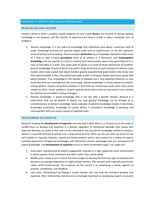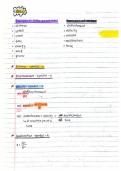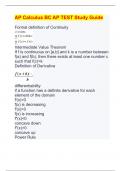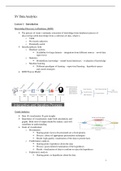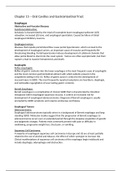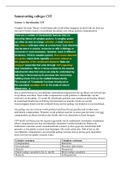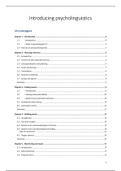PROBLEM 4: EXPERT AND NOVICE KNOWLEDGE
PROBLEM-SOLVING FACTORS
People’s ability to solve a problem usually depends on two crucial factors: the amount of domain-specific
knowledge at our disposal, and the amount of experience we have in trying to solve a particular class of
problems.
Domain knowledge: it is the realm of knowledge that individuals have about a particular field of
study. Knowledge domains are typically subject areas such as mathematics, ut can also represent
areas of activity such as driving. They encompass declarative (e.g. knowledge required to make sense
of a map or take a loan), procedural (skills of an athlete or a mechanic), and metacognitive
knowledge and can operate at a tacit or explicit level (observations about how good they are in a
class or find ideas in a text). One major goal of school is to build all three dimensions of students’
domain knowledge. Results of Recht and Leslie’s study found that on each measure of memory, poor
readers who knew a great deal about baseball greatly outperformed good readers who knew very
little about baseball. In fact, they performed really as well as the good readers who knew a great deal
about baseball. Thus, knowledge in the domain of baseball had a very powerful influence on how
much and what was remembered. Not surprisingly, domain knowledge is closely related to problem-
solving abilities. Experts, know that problems in their field are solved most easily when they can be
related to other, similar problems. Experts typically think before they act and tend to use a limited
but optimal set of problem-solving strategies.
General knowledge: is broad knowledge that is not like with a specific domain. Because it is
information that can be applied to almost any task, general knowledge can be thought of as
complementary to domain knowledge. Some examples of general knowledge include in declarative
knowledge vocabulary, knowledge of current affairs; in procedural knowledge is speaking; and
metacognitive skills are using a variety of cognitive tasks.
DEVELOPMENT OF EXPER TISE
Research studying the development of expertise estimate that it takes about 5 to 10 years or on the order of
10,000 hours to develop true expertise in a domain regardless of intellectual aptitude. One reason why
expertise develops so slowly is that much of the declarative and procedural knowledge needed to master a
domain is acquired tactically (implied) over a long period of time. Often we can use what we know but we
can’t explain it. Typically, however, experts are better problem solvers than novices for a variety of reasons
including experience, background knowledge, and information process advantages that are consequence of
expert knowledge. The development of expertise occurs in rather predictable stages. The stages are:
Early years: characterized by playful engagement, typically in a high supportive home environment
in which parents stress motivation and effort rather than native ability
Middle years: marks a turn in which the novice begins to develop the first true signs of expertise and
becomes increasingly dependent on highly skilled mentors. The mentors aren’t typically parents but
rather skilled professionals. The emphasis on this period is on developing a steady regimen of
practice, competition, and feedback.
Late years: characterized by finding a master teacher who can help the individual develop true
expertise. Peer relationships also become increasingly important as developing experts encounter
PROBLEM-SOLVING FACTORS
People’s ability to solve a problem usually depends on two crucial factors: the amount of domain-specific
knowledge at our disposal, and the amount of experience we have in trying to solve a particular class of
problems.
Domain knowledge: it is the realm of knowledge that individuals have about a particular field of
study. Knowledge domains are typically subject areas such as mathematics, ut can also represent
areas of activity such as driving. They encompass declarative (e.g. knowledge required to make sense
of a map or take a loan), procedural (skills of an athlete or a mechanic), and metacognitive
knowledge and can operate at a tacit or explicit level (observations about how good they are in a
class or find ideas in a text). One major goal of school is to build all three dimensions of students’
domain knowledge. Results of Recht and Leslie’s study found that on each measure of memory, poor
readers who knew a great deal about baseball greatly outperformed good readers who knew very
little about baseball. In fact, they performed really as well as the good readers who knew a great deal
about baseball. Thus, knowledge in the domain of baseball had a very powerful influence on how
much and what was remembered. Not surprisingly, domain knowledge is closely related to problem-
solving abilities. Experts, know that problems in their field are solved most easily when they can be
related to other, similar problems. Experts typically think before they act and tend to use a limited
but optimal set of problem-solving strategies.
General knowledge: is broad knowledge that is not like with a specific domain. Because it is
information that can be applied to almost any task, general knowledge can be thought of as
complementary to domain knowledge. Some examples of general knowledge include in declarative
knowledge vocabulary, knowledge of current affairs; in procedural knowledge is speaking; and
metacognitive skills are using a variety of cognitive tasks.
DEVELOPMENT OF EXPER TISE
Research studying the development of expertise estimate that it takes about 5 to 10 years or on the order of
10,000 hours to develop true expertise in a domain regardless of intellectual aptitude. One reason why
expertise develops so slowly is that much of the declarative and procedural knowledge needed to master a
domain is acquired tactically (implied) over a long period of time. Often we can use what we know but we
can’t explain it. Typically, however, experts are better problem solvers than novices for a variety of reasons
including experience, background knowledge, and information process advantages that are consequence of
expert knowledge. The development of expertise occurs in rather predictable stages. The stages are:
Early years: characterized by playful engagement, typically in a high supportive home environment
in which parents stress motivation and effort rather than native ability
Middle years: marks a turn in which the novice begins to develop the first true signs of expertise and
becomes increasingly dependent on highly skilled mentors. The mentors aren’t typically parents but
rather skilled professionals. The emphasis on this period is on developing a steady regimen of
practice, competition, and feedback.
Late years: characterized by finding a master teacher who can help the individual develop true
expertise. Peer relationships also become increasingly important as developing experts encounter

